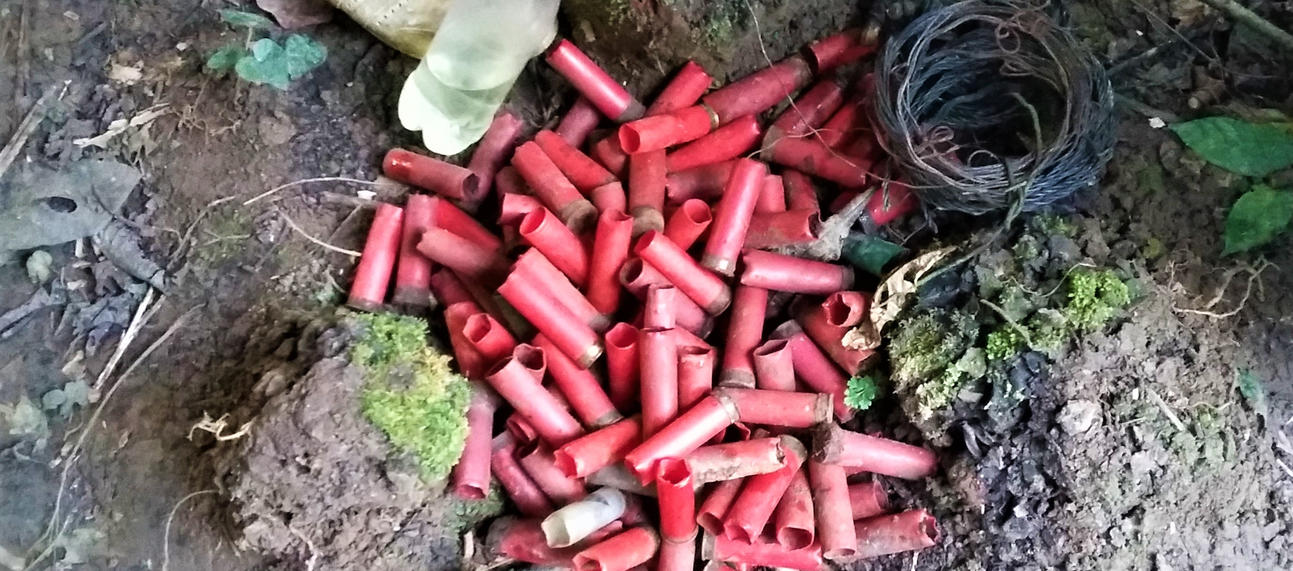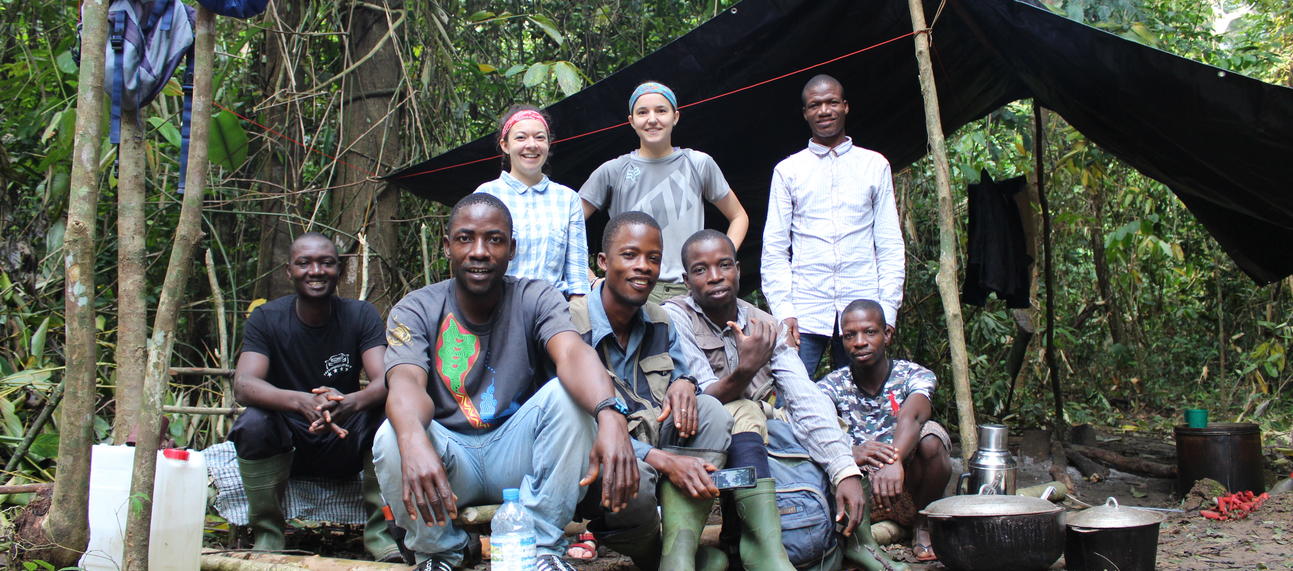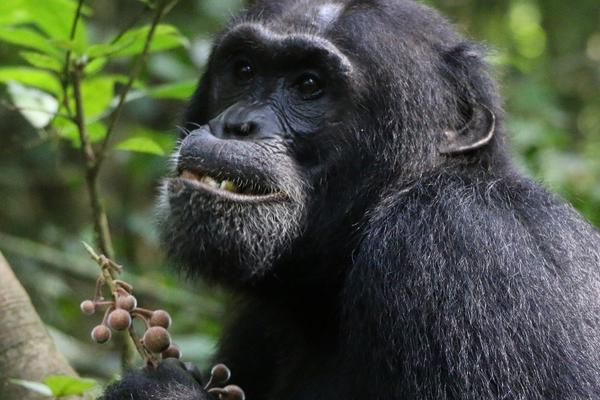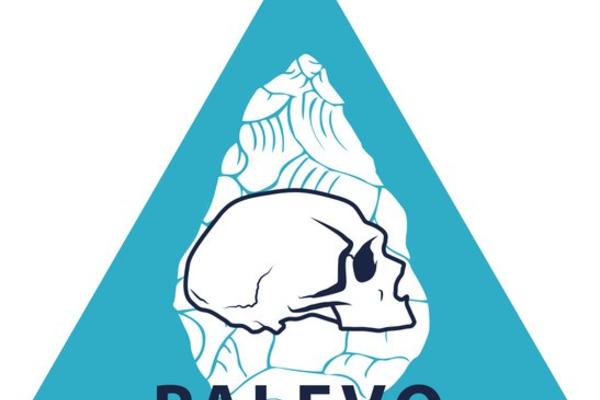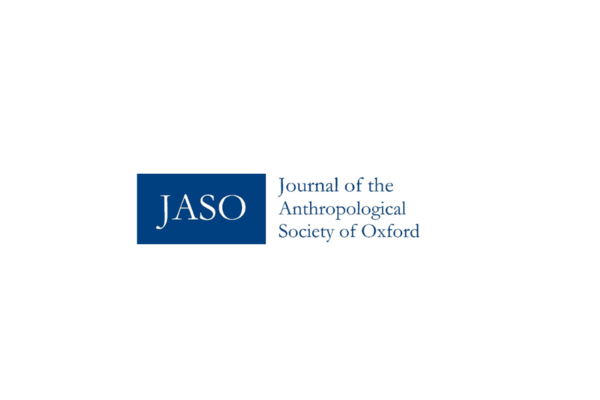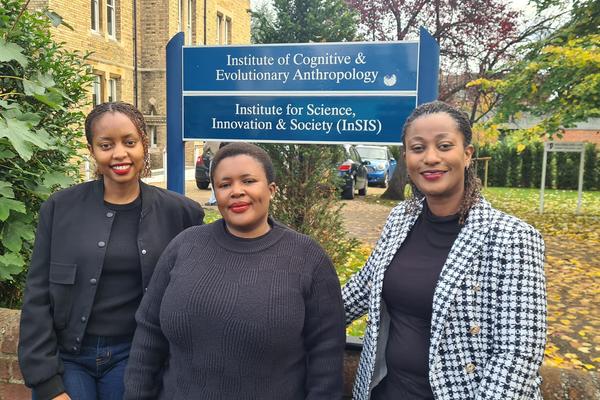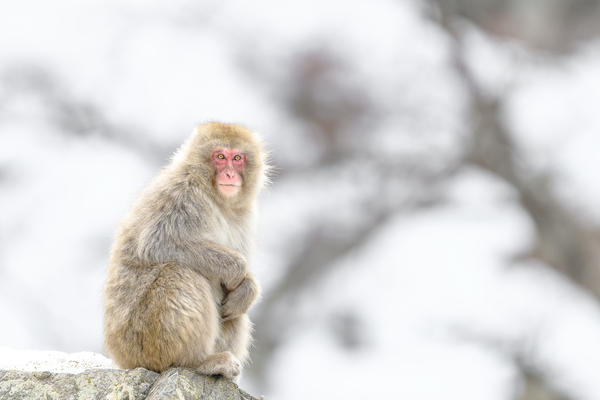'Urgent and concerted conservation action' needed to protect chimpanzee nut cracking populations in Guinea
Concerning evidence of human impact on protected areas highlighted in a new report by Dr Katarina Almeida-Warren.
In a new article published in African Primates lead author, Postdoctoral Researcher and Leverhulme Early Career Fellow Dr Katarina Almedia-Warren visits the Diécké Forest in Guinea to review chimpanzee nut cracking activities a decade after the last studies. Diécké is one of only two locations in Guinea where chimpanzees are known to crack nuts with tools and the populations there have their own distinctive cultural traditions in terms of the types of tool they use and the nuts they crack. Her work uncovered a concerning decrease in evidence of chimpanzee populations and no recent traces of nut-cracking or other activities. Conversely the research team found a multitude of evidence of human hunting in the protected area. Dr Almedia-Warren's research also highlights threats from increased human activity in the area including palm oil production and mining.
The intensification of human activities in and around Diécké pose a serious threat to one of West Africa's last lowland evergreen forests and those that depend on it - human and non-human alike.
Katarina Almeida-Warren
The study provides a detailed view of historical, socio-political and environmental developments, highlighting the links between conservation and socio-economic challenges faced in the region. It emphasizes the crucial need conservation approaches that acknowledge these realities.

